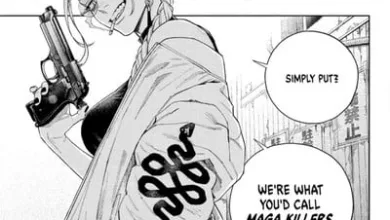There’s no question that Go, Go, Loser Ranger! is a dark deconstruction of Super Sentai/Power Rangers in anime form—but is that all it is? Chris and Lucas dive in to find out.
Disclaimer: The views and opinions expressed by the participants in this chatlog are not the views of Anime News Network.
Spoiler Warning for discussion of the series ahead.
Go, Go, Loser Ranger! is currently streaming on Hulu, while Dragon Ball Z, FUUTO PI, Love After World Domination, Miss Kuroitsu From the Monster Development Department, and SSSS.Gridman are available on Crunchyroll.
Shin Kamen Rider is available on Amazon Prime Video, while Science Ninja Team Gatchaman is currently streaming on HIDIVE. Choujin Sentai Jetman can be viewed on Shout-TV.
Chris
Lucas, we’ve got trouble. There’s an invasion of costumed alien monsters happening, and instead of five teenagers with the attitude to stop them, there’s just us couple of snarky anime critics.
I think the Earth might really be screwed this go-around.
Lucas
Oh man, Chris, if those aliens are a straight-up homage, we don’t stand a chance! But maybe, just maybe, if they’re a coy reference, a recontextualization, or a deconstruction of tokusatsu tropes; maybe—just maybe—those of us at ANN can rally together and give them a super showdown!
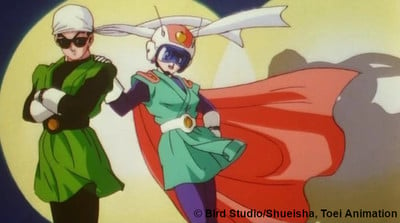
Look I can barely handle an internet comments section, so a rubber-suited monster styled after an everyday object is going to be way above my pay grade. Still, it never hurts to try, and it seems like the spandex-clad heroes in these super shows always prevail somehow anyway, so maybe we’ve got a fighting chance after all.
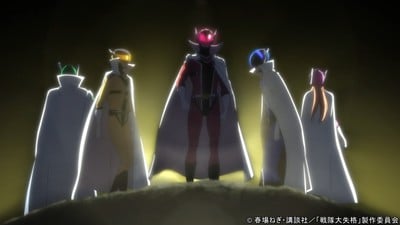
Thankfully we’ve got some ideal role models in the Dragon Keepers from this season’s
Go, Go, Loser Ranger!. Look at these upstanding moral examples of truth and righteousness.
Ah, what upstanding representatives of justice! Surely there aren’t a bunch of freaks and vaguely fascist, xenophobic weirdos underneath those masks and throughout their organization?
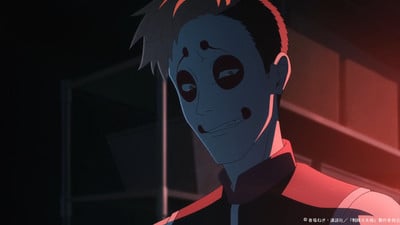
Ah shoot; spoke too soon!
Yeah, you said the d-word up top, and it seems “deconstruction” is indeed the order of the day with
Loser Ranger. I’ve seen multiple people describe this series as “
The Boys meets
Power Rangers, and while that is a bit on the twee side, it is at least appropriate in many ways. That is, tokusatsu hero shows like
Super Sentai go far back just like caped comic book heroes. So they’re a cultural component ripe to be riffed on in dark or subversive ways.
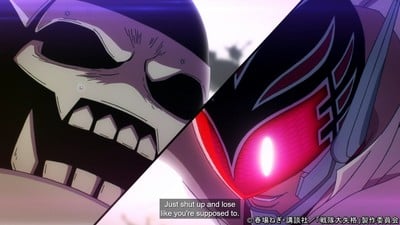
Now,
Loser Ranger does have a fair amount of other stuff going on besides “What if the Power Rangers were
evil?!!” but the core of it all is still based on structure and tropes that are ingrained in the overall tokusatsu transforming hero art form.
Haha, Loser Ranger actually made my most anticipated runner-up for the season specifically because I was hopeful that it’d use the culturally significant framework of tokusatsu heroes to deliver biting social commentary, like in the first season of The Boys. So far it’s been inconsistent in meeting my hope, but this pretty novel take on the tokusatsu formula is still a fun time!
Loser Ranger was my own top choice for seasonal anticipation, mainly because I’d already read some of the manga and, as a pretty big fan of tokusatsu and
Super Sentai, found myself into what it was doing.

Note: By “what it was doing” I mean including a morally questionable woman who would murder me at the slightest provocation.
You know, I remember seeing someone describe Yumeko as the first character in another series directly inspired by the design and popularity of Makima from
Chainsaw Man. I have no idea if that’s true or if that timeline even checks out, but I’m not complaining if this is the beginning of a trend!
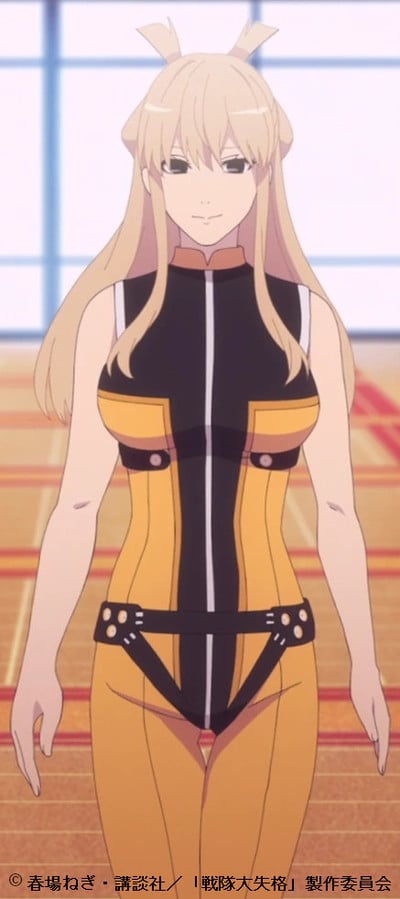
One of the deconstructive bits of
Loser Ranger is that a merchandisable alien-slaying industrial complex isn’t going to attract the most normal of applicants. Yeah, the violent dude in panda makeup is obviously “Not Right,” but other supporting Rangers who we meet, like Yumeko and Sakurama, seem alright on the surface—only to eventually out themselves as their own flavors of weirdos.
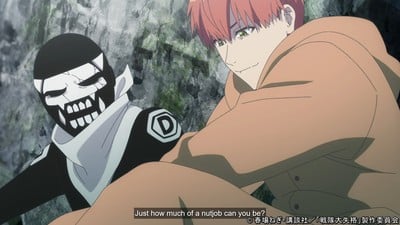
Loser Ranger has a really solid setup and I appreciate that it pretty quickly became an espionage and action-heavy political thriller between various self-interested people and actions—but I can’t help but wish that it had a little more thematic meat on its bones.
The story, especially in its opening stages, is very preoccupied with the idea of pre-ordained outcomes in these sorts of tried-and-true setups. It’s got “loser” right in the translated title, after all. Lead character Fighter D belongs to the inglorious ranks of mooks, henchmen, and Putty Patrollers as
Power Rangers fans back in the day knew them. His scrappy attitude contrasts with the legions of Rangers who might have become a little entitled on account of winning all the time.
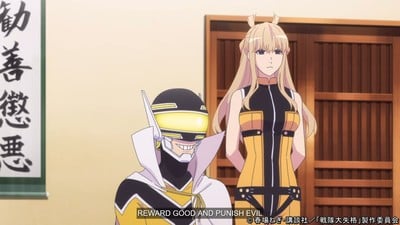
To me, that’s a thick enough theme to buoy it as it goes through different phases of D infiltrating the Ranger ranks. Still, I can see it losing other viewers a bit due to the sheer number of hoops it jumps through and the detours it takes to get there.
Ugh, that “high on their own supply” attitude is so SO HATEABLE!
Loser Ranger has great villain writing out of the gate, and the monumental gap in strength between D and most of the rangers makes the encounters much more interesting than its battle-shonen contemporaries.
That being said, there are well over a hundred chapters of the manga at this point, and I worry this premise might wear thin over the longer run. In my experience, tokusatsu riffs in anime are stronger and more impactful when they’re short and snappy. Case in point:
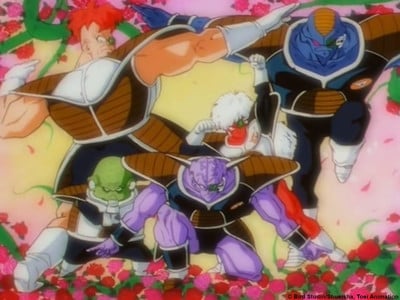
That’s a point lurking in the background about
Loser Ranger, after all. Just like
The Boys was hardly the first story to do “Evil Superman”, superhero tokusatsu tropes are so entwined in anime (and vice-versa) that the mediums are effectively cousins.
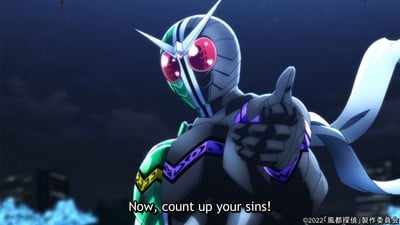
Hell, that bit I talked about earlier with the Ranger team being filled with distressing weirdos is something
Super Sentai has done plenty of times in the past. More people would know if
Toei actually let more people outside of Japan watch
Avataro Sentai Donbrothers.
Either way, there’s a reason you’ve already been able to pull two examples of the medium’s influence from just one series as foundational and well-known as Dragon Ball.
Oh, wait! I think I’ve heard of Avataro Sentai Donbrothers! That’s the one where the emo black ranger is a mascot character and the pink ranger is a wife guy, right???
The very same.
I might have seen Super Sentai referenced in anime before I had seen a
Power Rangers iteration, haha. But it is really cool that these distinct mediums have quietly influenced each other for decades. There’s even some notable overlap in creative talent! Not content to be just the
Evangelion guy,
Hideaki Anno was foundational in the recent
Shin Ultraman and
Shin Kamen Rider films; which are both cool as hell.
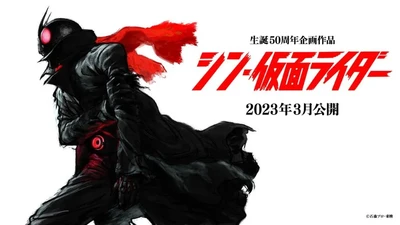
In terms of creative crossover, that’s where I’ll bring up that
Donbrothers writer
Toshiki Inoue is prolific enough in tokusatsu, but has also written a crap-ton of anime adaptations.
With regards to Anno, there’s also the point that Evangelion itself was largely influenced by Ultraman. There’s an interesting line to be drawn from that legendary Gainax series to Studio Trigger‘s duology of dynamite anime take-offs on Ultra-cousin-series Gridman.
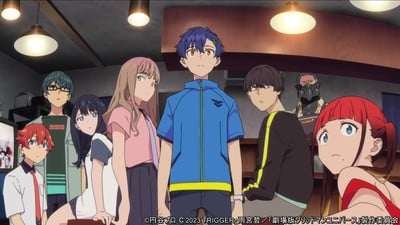
Ah Superhuman Samurai Syber-Squad, what a wild series to get a renaissance!
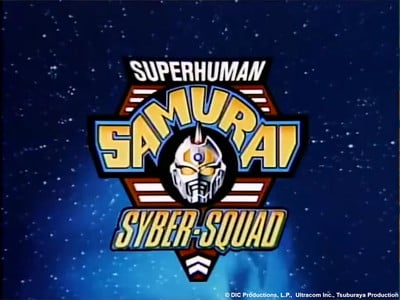
Leave it to the westaboos at
Trigger to court both sides of the Pacific. This brings me to something else
Loser Ranger got me thinking about, thanks to
Super Sentai being exported to the States as
Power Rangers, English-language viewers actually have a fair amount of context for everything being riffed on here and in those other examples!
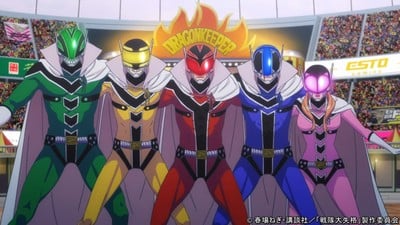
That’s not always a given with these kinds of particular cultural references, so I guess that’s one more point for the universal appeal of color-coded superheroes and rubber monster suits.
It’s my understanding that the main early importers of Japanese animated and live-action media, Saban Entertainment and DiC Entertainment, weren’t exactly the best places to work or the most stable companies, but they were pretty great in recognizing when a series would resonate with English-speaking audiences.
It’s cool that we can get theatrical releases for projects like
Shin Kamen Rider here, niche as that
franchise still is. But it’s also neat how we can click relatively easily with all the
Super Sentai-styled series we get now in the
simulcast era. Which it feels like we’ve been getting a fair amount of the last few years, like 2022’s
Love After World Domination.
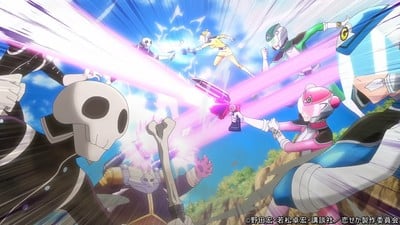
Note that both this and
Loser Ranger include
M.A.O. in the voice cast, referencing the tokusatsu lineage of both these shows and that actress.
Huh, now that you mention it, between
Gridman,
Love After World Domination,
Miss Kuroitsu From the Monster Development Department, and now
Loser Ranger; we’ve been getting a pretty steady drip of overtly tokusatsu inspired anime since at least 2018.
Also, I’d be remiss if I didn’t shout out Love After World Domination for having one of the most overt “The Writer’s Barely Disguised Fetish” scenes in recent memory. Proud of that team for letting their freak flag fly!

Look there’s at least one age-regression episode in every
Super Sentai season. If anything this is loyal to the spirit of the medium!
It’d be hard without hand-checking an entire list to confirm if there has been an overt uptick in anime based on this kind of material or if it just feels that way. We have seen toku-inspired projects at times before. Samurai Flamenco guillotined its way into our hearts back in 2013, after all.
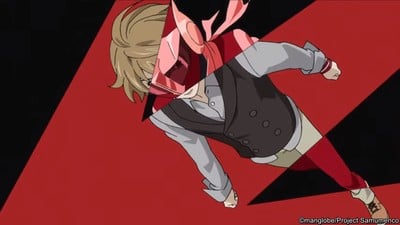
And now that Funimation‘s been axed there’s no way to officially stream it here. A pity, since Samurai Flamenco tackles a lot of toku subversion like Loser Ranger, but does it across a whole row of subjects besides just Super Sentai—and with even more out-there plot twists.
Yeah, one of the few downsides of anime popping off the way it has in the past couple of years is that it’s hard to tell if trends like these are real, or just feel that way because anime of all stripes are more prevalent than ever.
Also, while Miss Kuroitsu From the Monster Development Department isn’t anywhere near as impactful or important as Samurai Flamenco, it’ll always hold a special place in my heart for dedicating an entire episode to showing how corporate bureaucracy can turn a super cool monster design into a chicken with a gun.
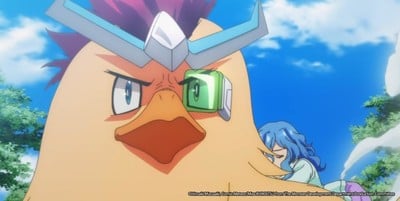
Miss Kuroitsu is interesting to cover in this context, since the hero in its story is definitely more of a
Kamen Rider type than a
Sentai sort. Still, the iconography and the idea of the villainous scientists making their monsters is well-understood enough that that’s not too troublesome a distinction.

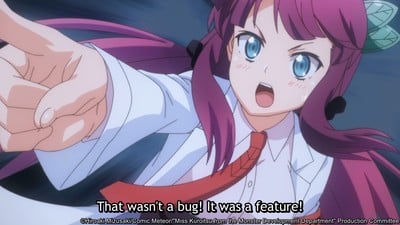
Though it
does also include guest appearances by “Local Heroes”, basically regional mascots in tokusatsu hero style, which is more of a cultural quirk that might pass casual, non-Japanese audiences by. I absolutely dig it though.
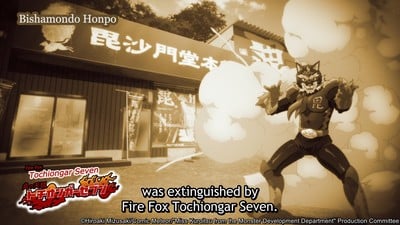
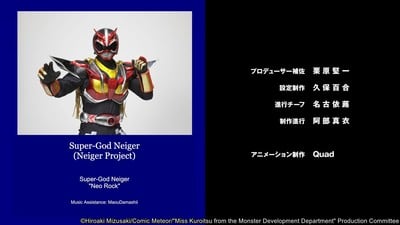
I went back to my old wiki haunt in preparation for this column, and found a page on the Tokupedia wiki dedicated to
all the references in Miss Kuroitsu! Man, the US is falling behind in the niche promotional mascot character game.
Also, I don’t think anyone’s ever given me a breakdown on the differences between Sentai, Kamen Rider, and Ultraman style heroes. Care to walk me through it?
Well, we’re already this deep in and I realize my fanboy ass has been referring to these things like they were common knowledge while still acknowledging the gaps in that context. So of course I can indulge you.
Ultraman is characterized by single heroes who grow giant when they transform to fight, usually by way of a human host carrying an alien visitor. The aforementioned
Gridman came out of the wider world of the Tsubaraya series that plays this way.
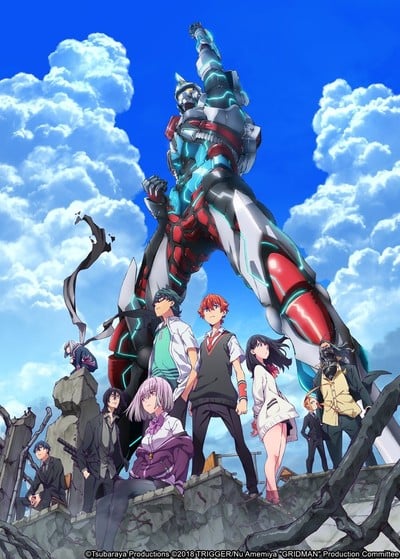 Kamen Rider
Kamen Rider is one of the big two
Toei toku hero franchises. It generally centers on a single hero (with additional secondary allies and rivals) who transforms into an armored form, usually by way of a fancy belt. That’s what Blader from
Miss Kuroitsu is primarily patterned on, and it’s even gotten its official anime as recently as
Kamen Rider W‘s spin-off
FUUTO PI.
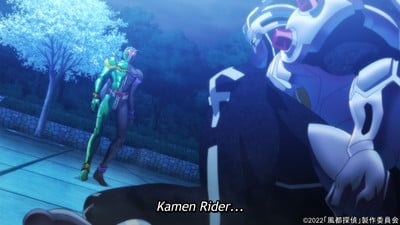
And then there’s
Super Sentai, which as we’ve covered, needs the least introduction. This is the other big
Toei series, focused on a whole team (that’s the titular
Sentai) of transforming heroes, usually with color coding to distinguish them.
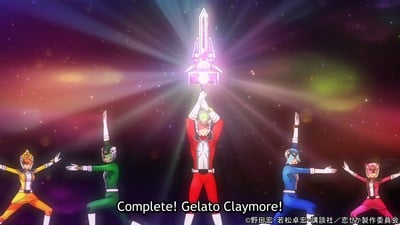
Thank you for the breakdown and I’m never gonna stop someone from fanboying! It’s also incredible how diverse this genre has grown considering—and please correct me if I’m wrong—that the original Ultraman series started because the special/practical effects company behind it, Tsuburaya Productions, wanted to showcase their offerings to potential clients.
The origins of these tokusatsu franchises can be as varied and detailed as the heroes they feature. Notably, and going back to our point about the intertwining of the mediums, both
Kamen Rider and
Super Sentai have beginnings in manga by
Shōtarō Ishinomori. Even the team-based framework for
Super Sentai is attributed to older anime, like
Tatsunoko‘s
Science Ninja Team Gatchaman from 1972.
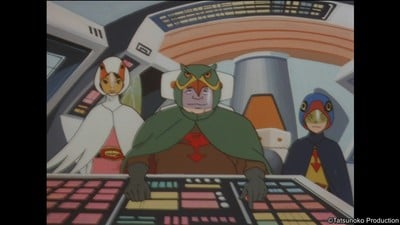
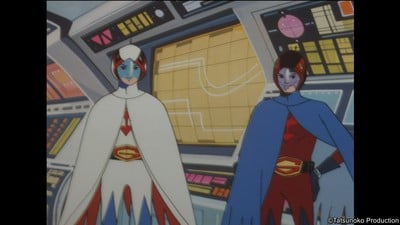
This only got more recursive when
Super Sentai did
Choujin Sentai Jetman, a season pretty clearly patterned on
Gatchaman itself. It was also written by that
Toshiki Inoue fella, tying things together further. And it featured an offbeat collection of team members ranging from cynical to downright criminal, putting it not too far from the subversions of
Loser Ranger.
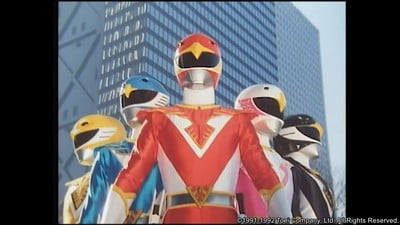
Oooooh~ that inspires another question for you, then! With your familiarity with the genre, does Loser Ranger feel less novel? As you describe it, it sounds like the Sentai series has been reevaluating its formulas and longstanding themes for a while now.
It’s true, after the abject insanity of
Donbrothers, it’s hard for any of the serious swerves of
Loser Ranger to come off as particularly shocking. And as mentioned, “Evil Superhero” is a concept that’s already wearing out its welcome in stories over here. But to be true, that’s not really why I’m into the series. Under the subversive parody, there’s a sense of genuine enthusiasm for the material it’s based on.
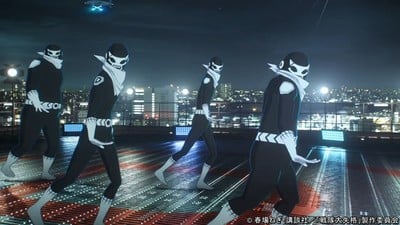
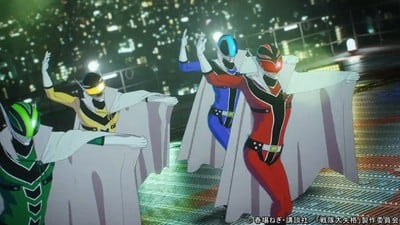
This encompasses elements specific to
Super Sentai that don’t have as much presence in the
Power Rangers version. The Sunday Showdown fights in
Loser Ranger embody the appeal of that live tokusatsu tie-in stage shows that I’ll probably never get to experience for myself. Even the ending theme is a take-off on the dancing-based endings so many
Sentai series have used over the years.
Aw, it’s great to hear that you can still connect with Loser Ranger, and that it’s as much a send-up of its source material as it is a deconstruction! Just goes to show that fans are the best people to iterate or critique genre-heavy media.
Having context for a lot of the anime’s material helps with some of that perspective, but I don’t know that it demands a fan focus. I can see recommending this to people who only have
Power Rangers as a reference point. It was interesting to hear your take on how
Loser Ranger was losing you in places. There’s certainly a case to be made for fandom-heavy media doing less for people who aren’t marking out because the characters are fighting in a parking garage that looks like the one
Toei always uses.
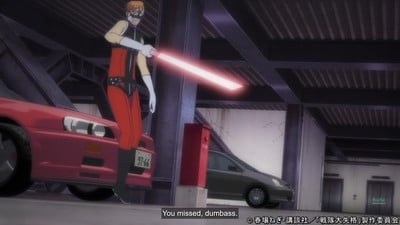
Haha, thank you, and that garage is way too deep a cut for me! I’m lucky if I pick up on references that would barely break the skin.
No shame in that! I’m just grateful the appeal of costumed monsters and the people who fight them is so universal. Another point in the “this is definitely a current trend” column is that Loser Ranger isn’t even the only toku-influenced anime adaptation airing this season. Our own Grant Jones put together a terrific run-down on Kaiju No. 8 and its influences from those nominal giant creature features, as well as series like Ultraman that incorporate them.
Aw man, how long until we can dedicate a TWIA to ranking all of the tokusatsu-inspired anime? Seems like there are more than enough now to pad out a tier list!
That might be a tall ask, given how, as we’ve covered, the roots of spandex and special effects run deep in anime. We’d probably need all of the TWIA writers to pilot a vehicle and form a giant robot to take it on. For now, I hope this has worked well as a monster-of-the-week-sized look at how these tropes, specifically the
Super Sentai-centric ones, might inform one’s enjoyment of
Go, Go, Loser Ranger!.
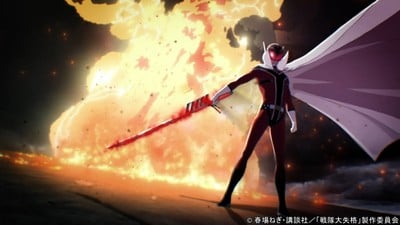
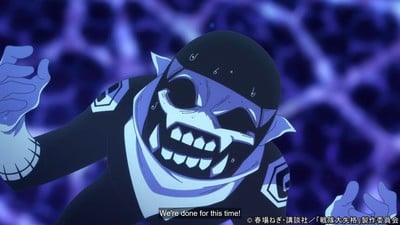

































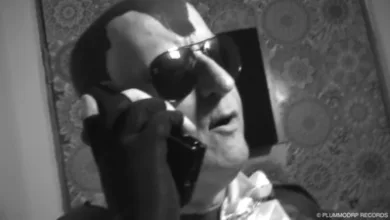
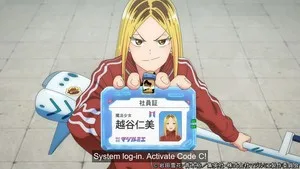
![For the Fans[ervice] - This Week in Anime](https://theanimenews.net/wp-content/uploads/2024/11/1732205217_For-the-Fanservice-This-Week-in-Anime-390x220.webp)
